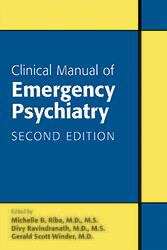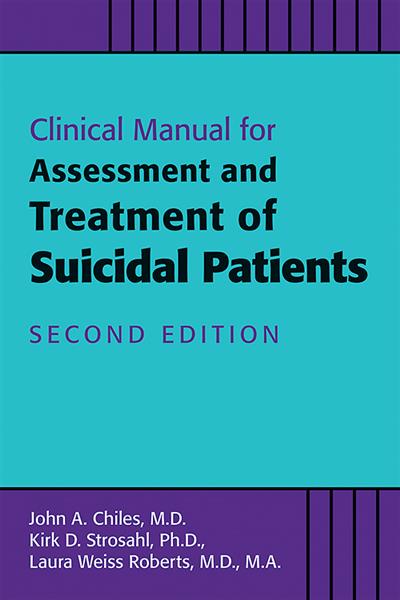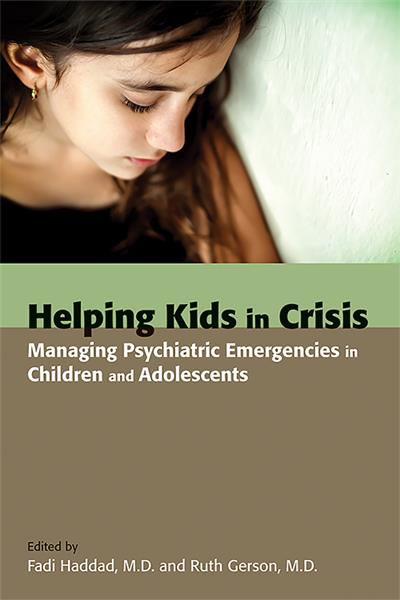Community-Based Mental Health Crisis Services
October 2019
When people experience a mental health crisis (e.g., has suicidal thoughts, symptoms of psychosis, or relapse of substance use), they often seek assistance from mental health crisis services. Psychiatric Services has published several seminal studies regarding crisis services, as highlighted in this month’s Editor’s Choice.
The first three articles in this collection detail how crisis services have been prioritized by state and federal policy makers as a response to system pressures such as emergency department boarding of psychiatric patients and limited psychiatric inpatient bed capacity. Subsequent articles are organized by service models described in the 2016 National Action Alliance for Suicide Prevention’s Crisis Services Task Force report, “Crisis Now: Transforming Services is Within Our Reach.” In a comprehensive crisis system, community-based services can be utilized as a continuum of care; whereas some crises will resolve with a phone call to a crisis call center, others will require mobile crisis team dispatch, and a minority will require further escalation to a crisis facility with services such as 23-hour observation, short-term respite, or longer-term crisis residential services. Access to these services relies on collaboration with law enforcement through models such as the crisis intervention team, which are described in the last section of the collection.
Lisa B. Dixon, M.D., M.P.H.
Browse all Editor’s Choice collections
Capacity Issues and the Role for Crisis Services
Joseph L. Smith, M.P.H., Alessandro S. De Nadai, M.A., Eric A. Storch, Ph.D., Barbara Langland-Orban, Ph.D., Etienne Pracht, Ph.D., John Petrila, J.D., LL.M.
2016, Volume 67, Issue 11, pp. 1169–1174
In response:
Marvin S. Swartz, M.D.
2016, Volume 67, Issue 11, p. 1163
In response:
Margaret E. Balfour, M.D., Ph.D., Chris A. Carson, M.D., M.B.A., and Robert Williamson, M.D.
2017, Volume 68, Issue 3, p. 306
Crisis Call Centers
Wendi F. Cross, Ph.D., Tian Chen, Ph.D., Karen Schmeelk-Cone, Ph.D., Xin Tu, Ph.D., Marjorie Kleinman, M.S., Madelyn S. Gould, Ph.D., M.P.H.
2017, Volume 68, Issue 10, pp. 1083–1087
Rajeev Ramchand, Ph.D., Elan Cohen, M.S., John Draper, Ph.D., Michael Schoenbaum, Ph.D., Dan Reidenberg, Psy.D., Lisa Colpe, Ph.D., M.P.H., Jerry Reed, Ph.D., Jane Pearson, Ph.D.
2019, Volume 70, Issue 8, pp. 728–731
Also featured in the Suicide Prevention, Part 1: Identifying and Predicting Risk, Vulnerable Populations, Public Perceptions, and Priority Settings collection.
Featured in our Alexa Flash Briefing, Psychiatric News Brief.
Mobile Crisis
Jeffrey L. Geller, M.D., M.P.H., William H. Fisher, Ph.D., Melissa McDermeit, M.S.W.
1995, Volume 46, Issue 9, pp. 893–897
Roger L. Scott, L.C.S.W.
2000, Volume 51, Issue 9, pp. 1153–1156
Shenyang Guo, Ph.D., David E. Biegel, Ph.D., Jeffrey A. Johnsen, Ph.D., and Hayne Dyches, Ph.D.
2001, Volume 52, Issue 2, pp. 223–228
Michael Fendrich, Ph.D., Melissa Ives, M.S.W., Brenda Kurz, Ph.D., Jessica Becker, M.S.W., Jeffrey Vanderploeg, Ph.D., Christopher Bory, Psy.D., Hsiu-Ju Lin, Ph.D., Robert Plant, Ph.D.
2019, Volume 70, Issue 10, pp. 881–887
Crisis Facilities
William B. Hawthorne, Ph.D., Elizabeth E. Green, Ph.D., Todd Gilmer, Ph.D., Piedad Garcia, Ed.D., Richard L. Hough, Ph.D., Martin Lee, Ph.D., Linda Hammond, Ph.D., and James B. Lohr, M.D.
2005, Volume 56, Issue 11, pp. 1379–1386
Kerry A. Thomas, B.Sc.(Psych.), B.Soc.Sc.(Psych.), and Debra Rickwood, Ph.D., B.A.
2013, Volume 64, Issue 11, pp. 1140–1149
Ellen E. Bouchery, M.S., Michael Barna, M.A., Elizabeth Babalola, M.P.H., Daniel Friend, M.S., Jonathan D. Brown, Ph.D., Crystal Blyler, Ph.D., Henry T. Ireys, Ph.D.
2018, Volume 69, Issue 10, pp. 1069–1074
Also featured in the Peer Support collection.
Law Enforcement Collaboration
Michael T. Compton, M.D., M.P.H., Roger Bakeman, Ph.D., Beth Broussard, M.P.H., Dana Hankerson-Dyson, M.P.A., M.P.H., Letheshia Husbands, B.A., Shaily Krishan, M.P.H., Tarianna Stewart-Hutto, M.S., Barbara M. D'Orio, M.D., M.P.A., Janet R. Oliva, Ph.D., Nancy J. Thompson, Ph.D., M.P.H., and Amy C. Watson, Ph.D.
2014, Volume 65, Issue 4, pp. 517–522
Michael T. Compton, M.D., M.P.H., Roger Bakeman, Ph.D., Beth Broussard, M.P.H., Dana Hankerson-Dyson, M.P.A., M.P.H., Letheshia Husbands, B.A., Shaily Krishan, M.P.H., Tarianna Stewart-Hutto, M.S., Barbara M. D'Orio, M.D., M.P.A., Janet R. Oliva, Ph.D., Nancy J. Thompson, Ph.D., M.P.H., and Amy C. Watson, Ph.D.
2014, Volume 65, Issue 4, pp. 523–529
Margaret E. Balfour, M.D., Ph.D., Jason M. Winsky, B.A., and Jill M. Isely, B.A.
2017, Volume 68, Issue 2, pp. 211–212
Hari-Mandir K. Khalsa, M.S., Attila C. Denes, M.B.A., Diane M. Pasini-Hill, M.A., Jeffrey C. Santelli, M.S., Ross J. Baldessarini, M.D.
2018, Volume 69, Issue 2, pp. 239–241
Also featured in the Mental Health Criminal Justice Diversion collection.
Browse all Editor’s Choice collections
Related Books
Comments and feedback about Editor’s Choice: [email protected]





